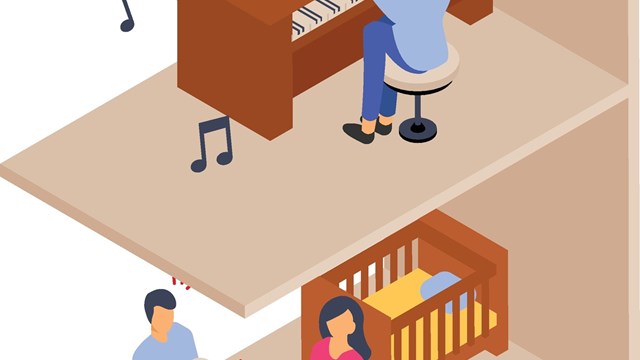
New York's tabloids have gotten hold of a lawsuit filed by Madonna against her Manhattan co-op board for refusing to allow her children to stay in her unit when she is not occupying the unit herself. For those not familiar with the unique world of Manhattan co-ops, that a board can dictate whether a shareholder’s own children are allowed to live in her unit seems bizarre. But, the house rule, which the lawsuit says was adopted after Madonna became a shareholder, is commonplace in co-ops across the city.
Stuart Saft, a partner with the Manhattan-based law firm of Holland & Knight, who is defending the Central Park West co-op Harperley Hall, says Madonna’s complaint contends that the occupancy rule violates the city’s roommate law. The roommate law guarantees residents the right to have a roommate, not just in rental units but any dwelling. “The only thing about the roommate law is that it requires the roommate to be in residence,” says Saft.
Therein lies the rub. The building says Madonna, who also owns a mansion across town on the Upper East Side, does not actually live at Harperley Hall and hasn’t for years. Therefore, the roommate law doesn’t apply. Adam Leitman Bailey, founding partner of the law firm of Adam Leitman Bailey P.C. is not involved with the suit, but says, “This kind of clause has been in co-ops since I started practicing law, but the reason they're being enforced so strictly is because of Airbnb cases.”
Lease Amendments
The other part of Madonna's argument is that the house rule violates her proprietary lease since it was amended after she became a shareholder. “The proprietary lease was amended with a vote of more than two thirds of the unit owners about three years ago. Before that it said pretty much the same thing, it's just amending the proprietary lease we made it more specific so that it couldn't be interpreted any other way,” says Saft.
It does raise the question of what rights shareholders have to protest rules that were changed after they bought into the building, however slightly. Bailey speculated that the international pop star might be able to argue the rule is discriminatory against her family status. “Most of the discrimination cases are in the case of landlords refusing to rent to [tenants] to begin with. We see co-op complaints because boards don't approve a lease because of racial discrimination or national-origin discrimination, but not presence of children. I don't think that's a typical co-op complaint for us,” says Seth Hoy, press secretary for the New York City Commission on Human Rights.
Interview Requirements
Saft says that if Madonna wants her kids to live with her in the apartment, then they have to be interviewed by the board like everyone else. Such is the way business is done on Central Park West. “There's a lot of kids in my apartment, and kids in the apartments I represent. I'm talking about leaving somebody alone in the apartment, where there's no adult supervision and the concern for the other people in the building, other people in the building including the elderly, other people with young children. So how do you protect the rights of the people already there, if you don't have some control over who's moving in?”
It takes a village...to be left alone.
Tom Lisi is the associate editor of The Cooperator.









Comments
Leave a Comment